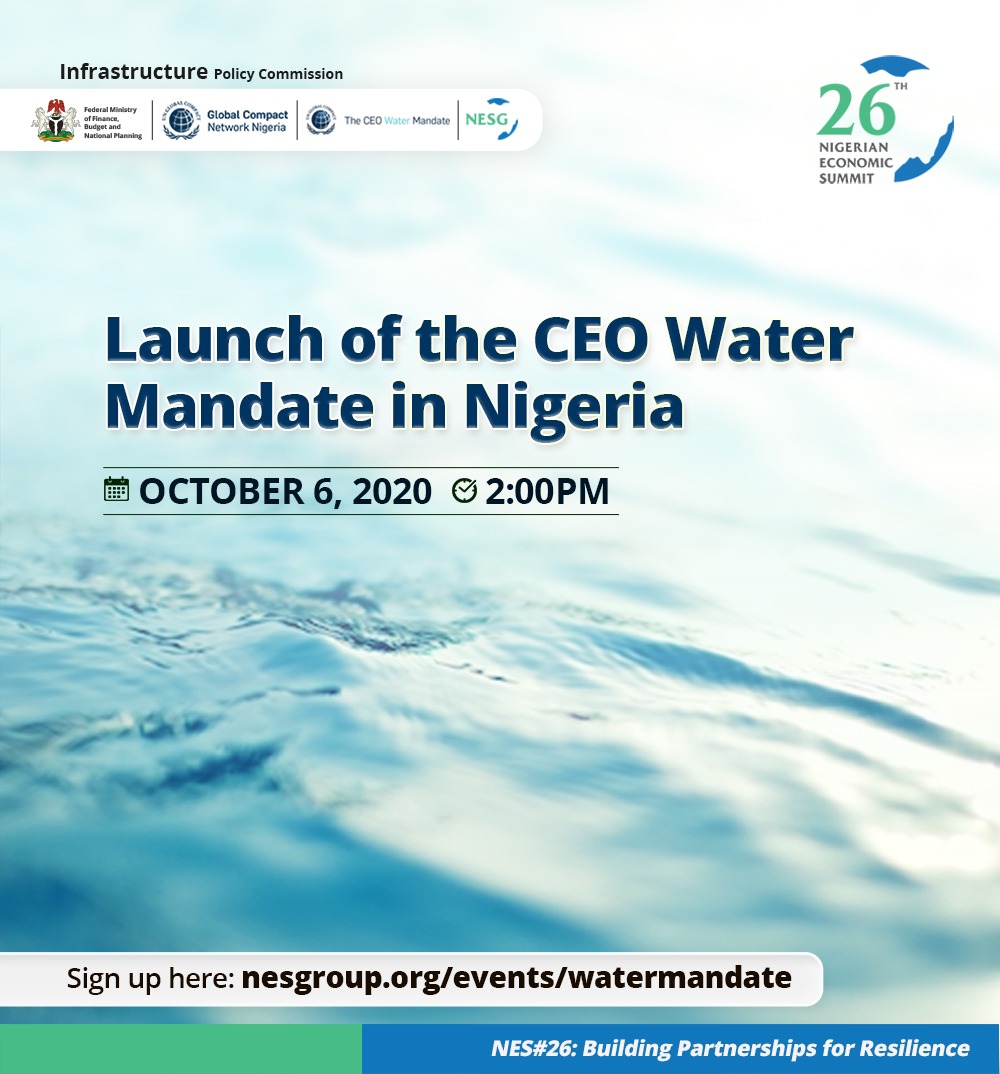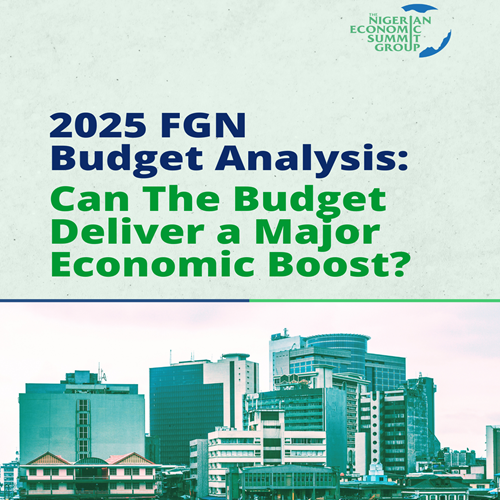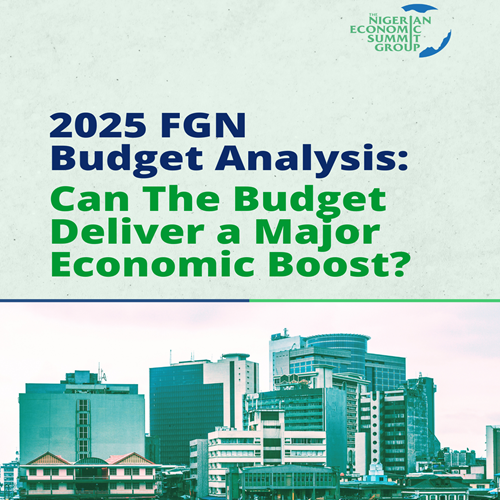Posted Wed, Oct 7, 2020 9:26 AM
NESG, UNGC Launch the CEO Water Mandate in Nigeria

The Nigerian Economic Summit Group (NESG) and the Federal Ministry of Finance, Budget and National Planning in conjunction with the United Nations Global Compact Nigeria (UNGC) held a Pre-#NES26 event on the 6th of October 2020. The event which is among a series of pre- 26th Nigerian Economic Summit events will help to shape strategic partnerships to chart a path to recovery, and build resilience for the country’s economy, businesses and households by delivering conversations that will put Nigeria in a strong position within the changing world order.
While welcoming participants to the event, Board member of the NESG and Chairman, KPMG Africa, Mr. Kunle Elebute who was represented by the facilitator of the Infrastructure Policy Commission of the NESG and co-chair of the Joint Planning committee of the 26th Nigerian Economic Summit, Mr. Nnanna Ude said that Water poses one of the greatest sustainability challenges to the 21st century. “Water scarcity and pollution threaten our ability to grow vibrant and stable economies, meet basic human needs, and protect healthy ecosystems, while also posing severe human health problems”, Mr. Ude stated.
While delivering the opening remarks, Mr. Jason Morrison Head of UN Global Compact CEO Water Mandate and President of the Pacific Institute said that companies can face physical, reputational and regulatory risks when it comes to water usage and that climate change is an emerging water risk for companies. He said corporate water stewardship emerged about 15 years ago to achieve sustainability through a stakeholder inclusive process.
The Honourable Minister for water Resources, Engr. Suleiman Adamu said Nigeria’s surface and ground water resource is estimated at 250 billion cubic metres and that Nigeria is ranked as an economically water scarce country. He said there are a number of policies including the national resources masterplan, national irrigation and drainage policy, water sector roadmap and the national Water Sanitation and Hygiene (WASH) which are all aimed at promoting the management of Nigeria’s water resources. “Nigeria’s water sector has huge potentials for private sector investment and we currently have over 200 dams across the country. In addition, we have 3.1 million hectares of irrigable land and a total of 55,000 hectares of irrigable land leased out to commercial farmers. The 2019 WASH national survey puts national access to portable water at 71 percent and 52 percent for water and sanitation respectively”, Engr. Adamu revealed.
Christian Vousvouras Public Affairs Manager, Nestle revealed that water is a national resource and can be a fantastic carrier than connects people. Speaking in the same vein, Mr. Jan-Willem Vosmeer - Global Manager Corporate Social Responsibility, Heineken International N.V. said that his company made a conscious effort to reduce the amount of water needed for manufacturing their products and that 96 percent of waste water generated by Heineken is treated to help generate healthy water shed.
The chairman of the board of the NESG, Mr. Asue Ighodalo while launching the CEO water mandate revealed that Nigeria is ranked as an economic water scarce country, mainly due to inadequate investment in the development and management of available water resources for social, economic and environmental needs. He revealed that in 2015, National access to water supply was estimated at 69%, which implies that 31% or 52.7 million Nigerians do not have access to water supply.
The NESG Chairman reiterated that the CEO Water Mandate seeks to make a positive impact with respect to the emerging global water crisis by mobilizing a critical mass of business leaders to advance water sustainability solutions through six core elements including Direct Operations, Supply Chain and Watershed Management, Collective Action, Public Policy, Community engagement and transparency.
Furthermore, Mr. Ighodalo stated that the mission of the CEO Water Mandate is to mobilize a critical mass of business leaders to address global water challenges through corporate water stewardship, and this will be done in partnership with the United Nations, governments, civil society organizations, and other stakeholders. “Water is the most important resource, next to air. We must respect, conserve and treat water with the respect it deserves.”, Mr. Ighodalo said.
Ms. Evelyn Mere- Country Director, WaterAid Nigeria said that WaterAid will continue to seek collaboration for effective water resources management, community engagement, and provision of technical support to initiatives that protect watersheds. She said that her organization works with other organisations to develop their WASH policies, generate evidence to inform private sector, develop wash risk maps, protecting water bodies, reducing water contamination and collaborate with the CEO water mandate globally.
During a discussion on the CEO Water Mandate Action points, the CEO of the NESG, Mr. ‘Laoye Jaiyeola revealed that 1 out of 3 Nigerians don’t have access to clean water and that while 32 percent had access to pipe borne water and Nigeria had an open defecation rate of 24 percent in 1990, only 7 percent have access to pipe borne water and the defecation rate was 25 percent as at 2015 respectively. He said it was critical for everyone to work together to deal with the problems associated with water and hygiene.
Executive director UNGC Nigeria, Ms. Naomi Nwokolo, mentioned that the lake Chad has decreased by 90 percent due to deforestation and over grazing and unsustainable irrigation project. She encouraged companies to sign on to the CEO water mandate and everyone to join hands to save the environment.
While delivering the closing remarks, Ms. Mai-Lan Ha Senior Advisor, CEO Water Mandate, UN Global Compact said there is not one solution to the worlds water problem and it is critical to take note of successful interventions and see how it can be applied into local content, taking into account local variables.
The 26th Nigerian Economic Summit will be the highpoint of a ‘Big Conversation for Action’ driven by pre-Summit events. These virtual events will kickstart discussions on this year’s Summit Theme and will enable us convene a wider range of stakeholders to deliberate on a broad set of thematic and sectoral issues with key outcomes.
The theme of this year’s Summit is “Building Partnerships for Resilience” and it is scheduled to hold from October 26 – 27, 2020. Discussions at NES #26 will be anchored on three pillars – Collaboration, Execution and Impact – and dimensioned across five sub-themes: Mapping the Future; New Trends, New Opportunities, New Horizons; Embracing Technology and Innovation; Building Resilience and Charting the Path to Recovery.
Find a blog post
Latest Releases

2025 FGN Budget Analysis: Can Th .. Read
1 day ago

2025 FGN Budget Analysis: Can Th .. Read
1 day ago
_1745876187.png)
Industrial Policy Commission Gen .. Read
2 weeks from now
